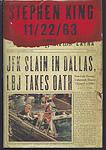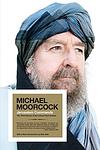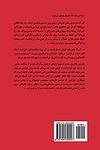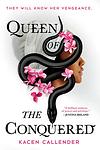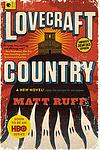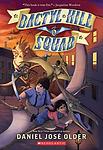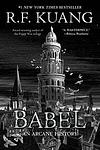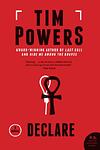The Greatest "Historical fiction, Fiction, Alternate History" Books Since 1980
Click to learn how this list is calculated.
This list represents a comprehensive and trusted collection of the greatest books. Developed through a specialized algorithm, it brings together 300 'best of' book lists to form a definitive guide to the world's most acclaimed books. For those interested in how these books are chosen, additional details can be found on the rankings page.
Genres
Historical fiction is a genre of literature that combines fictional stories with real historical events, settings, and characters. These books often take place in a specific time period and are based on research and factual information, but also include imaginative elements to create a compelling narrative. Historical fiction allows readers to experience the past in a unique and engaging way, while also providing insight into the social, cultural, and political issues of the time.
Alternate History is a genre of fiction that explores the possibilities of what could have happened if certain historical events had taken a different course. It involves imagining a world where key moments in history have been altered, resulting in a different outcome. This genre often blends elements of science fiction, fantasy, and historical fiction, and can provide thought-provoking insights into the impact of historical events on our present-day world.
Countries
Date Range
Reading Statistics
Click the button below to see how many of these books you've read!
Download
If you're interested in downloading this list as a CSV file for use in a spreadsheet application, you can easily do so by clicking the button below. Please note that to ensure a manageable file size and faster download, the CSV will include details for only the first 500 books.
Download-
1. The Underground Railroad by Colson Whitehead
This novel follows the journey of Cora, a young slave on a cotton plantation in Georgia, who escapes and embarks on a journey towards freedom via the Underground Railroad. The book presents a literal version of the historical Underground Railroad, portraying it as a physical network of tunnels and tracks beneath the Southern soil. As Cora travels from state to state, she encounters different worlds and harsh realities, each one illuminating the various forms of oppression Black people faced in America. The narrative is a brutal exploration of America's history of slavery and racism, and a testament to the unyielding spirit of those who fought against it.
-
2. The Plot Against America by Philip Roth
This novel presents an alternate history where aviator-hero and rabid isolationist Charles Lindbergh is elected President in 1940, leading the United States towards fascism and anti-Semitism. The story is narrated through the perspective of a working-class Jewish family in Newark, New Jersey, experiencing the political shift and its terrifying consequences. The narrative explores themes of prejudice, fear, patriotism, and family bonds under the shadow of a fascist regime.
-
3. Fatherland by Robert Harris
Set in an alternate history where Nazi Germany won World War II, the novel follows a German detective who uncovers a vast conspiracy while investigating a murder. As he delves deeper into the case, he realizes that the government is hiding a monumental secret that could shake the very foundations of the Reich. His pursuit of the truth leads him into a dangerous game of cat and mouse with the state's oppressive security forces, challenging his loyalty to the regime and forcing him to confront the moral complexities of a world dominated by fascism.
-
4. 11 22 63 by Stephen King
"11/22/63" is a science fiction novel by Stephen King that follows the story of Jake Epping, a high school English teacher who discovers a portal that leads to 1958. After being convinced by his friend Al to use the portal to prevent the assassination of John F. Kennedy, Jake embarks on a journey through time to change the course of history. Along the way, he falls in love with a woman named Sadie and faces various obstacles that threaten to alter the timeline he is trying to change. The book explores themes of love, loss, and the consequences of trying to change the past.
-
5. The History of the Siege of Lisbon by José Saramago
This narrative revolves around a proofreader named Raimundo Silva, who, while working on a historical text about the Siege of Lisbon, decides to alter history by adding a single word to the text, turning the factual account into a fictional one. This act of rebellion leads him into a relationship with his boss, Maria Sara, and together they explore the consequences of questioning historical facts and narratives. The story also delves into the power of language and storytelling, and the blurred lines between history and fiction.
-
6. Jerusalem Commands by Michael Moorcock
In "Jerusalem Commands," readers are transported through a fantastical and surreal narrative that follows the adventures of Colonel Pyat, an unreliable and often delusional protagonist. Set against the backdrop of the early 20th century, the novel weaves through the chaos of a world between wars, touching upon themes of imperialism, addiction, and the quest for identity. Pyat's journey is marked by a series of escapades and misadventures that take him from Europe to Africa, exposing the dark underbelly of colonialism and the human psyche. The book is the third in a series, characterized by its rich historical tapestry and a protagonist who is as charismatic as he is morally ambiguous, leaving readers to question the very nature of truth and history.
-
7. La Part De L'autre by Éric-Emmanuel Schmitt
The book presents an intriguing alternate history, exploring two parallel narratives: one in which Adolf Hitler is accepted into the Academy of Fine Arts in Vienna, leading to a life as a modest artist, and another where he is rejected, setting him on the path to becoming the Führer of Nazi Germany. This thought-provoking exploration examines the impact of seemingly small events on the course of history and the nature of evil, as it juxtaposes the life Hitler could have led with the infamous one he did, raising questions about destiny, choice, and the inherent potential for good and evil within us all.
-
8. Queen Of The Conquered by Kacen Callender
Set on a Caribbean-inspired island, the narrative unfolds in a world where colonial powers have subjugated the native population. The protagonist, a woman of mixed heritage, possesses a unique ability to control minds—a power she plans to use to exact revenge on the ruling class that oppressed her people and murdered her family. As she maneuvers through a treacherous web of politics, rebellion, and personal ambition, she grapples with the moral complexities of her quest for vengeance and her own complicity in the brutal system she seeks to overthrow. The story is a gripping exploration of power, justice, and the cost of liberation in a society rife with inequality and prejudice.
-
9. Anno Dracula by Kim Newman
In this alternate history novel, the world is a macabre tapestry where Count Dracula has not only survived but triumphed, marrying Queen Victoria and spreading vampirism throughout the British Empire. The narrative weaves a complex, gothic tale where historical and fictional characters coexist. As the vampire elite rise to power and influence, a gripping story of political intrigue, horror, and murder unfolds, with a Jack the Ripper-like figure preying on vampire prostitutes in London's shadowy streets. The book explores themes of class, power, and the nature of monsterhood, all set against the rich backdrop of a Victorian society transformed by the undead.
-
10. Lovecraft Country by Matt Ruff
"Lovecraft Country" is a captivating and thought-provoking novel that seamlessly blends elements of horror, science fiction, and historical fiction. Set in the 1950s, the story follows a young African American man named Atticus Turner as he embarks on a dangerous journey through the racially segregated United States. Along the way, Atticus and his friends encounter supernatural forces, face institutional racism, and confront the horrors of Lovecraftian mythology. With its richly drawn characters and exploration of racial tensions, the book offers a unique and compelling perspective on both the genre of horror and the complexities of American society.
-
11. Dactyl Hill Squad by Daniel José Older
"Dactyl Hill Squad" is an adventurous historical fiction novel set during the Civil War era. The story follows a group of young orphaned children who possess the ability to communicate with dinosaurs. When their home is attacked and their caretaker is kidnapped, they join a secret society of young rebels who ride dinosaurs to fight against the oppressive forces of the Confederacy. With their unique abilities and newfound allies, the children embark on a dangerous mission to rescue their friend and bring justice to their war-torn world.
-
12. The Dragon Waiting by John M. Ford
"The Dragon Waiting" is an intricate alternate history fantasy novel that reimagines Renaissance Europe as a landscape dominated by vampire-controlled Byzantine Empire and a weakened Christian church. The story weaves together the fates of several characters, including a mercenary, a physician who is also a vampire, a young wizard, and a displaced noblewoman. As they navigate political intrigue and warfare, their paths intersect with historical figures like Richard III, leading to a climactic alteration of historical events. The novel blends elements of fantasy, history, and political intrigue to explore themes of power, loyalty, and identity.
-
13. Babel by R. F. Kuang
This novel is a dark academic fantasy set in an alternate 19th-century Oxford, where translation is the key to harnessing magical power. It follows the journey of an orphan from Canton, who, after a tragic loss, is brought to England and later admitted into the prestigious Royal Institute of Translation, known as Babel. There, he discovers the true cost of the empire's linguistic dominance and magical control. As tensions rise and loyalties are tested, the protagonist must navigate a complex web of colonialism, power, and rebellion, ultimately confronting the oppressive structures of the institute and the empire it serves. The narrative weaves together themes of language, knowledge, and resistance, challenging the foundations of power and the price of progress.
-
14. Declare by Tim Powers
In this supernatural espionage thriller, a British intelligence agent uncovers a secret history of paranormal forces and Cold War intrigue. The protagonist is drawn into a world where mythical creatures and occult rituals are entwined with real historical events, particularly those involving the Soviet Union. As he navigates a shadowy battlefield that spans from the ruins of post-war Europe to the deserts of the Middle East, he must confront a demonic entity and unravel a conspiracy that challenges his understanding of reality, all while grappling with personal demons and a complex love interest. The novel blends historical fact with dark fantasy, creating a unique tapestry of suspense and supernatural warfare.
Reading Statistics
Click the button below to see how many of these books you've read!
Download
If you're interested in downloading this list as a CSV file for use in a spreadsheet application, you can easily do so by clicking the button below. Please note that to ensure a manageable file size and faster download, the CSV will include details for only the first 500 books.
Download


